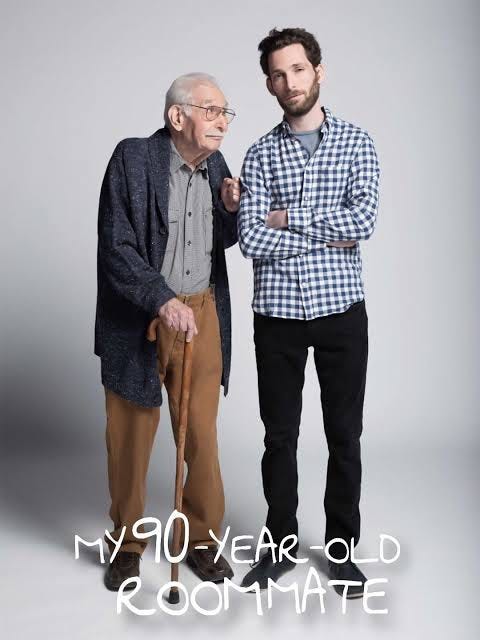When it comes to Canadian culture, I’ll probably be the last man standing, the last of the Mohicans believing in such a thing long after the country itself has abandoned it, the last of the Japanese soldiers camouflaging in the jungle adamant that they’re still fighting in World War Two. Unlike most people around me, I try not to give up on entire artistic disciplines even though they currently churn nothing but mindless commercial pablum and didactic Zhdanovism. But oh boy is Canadian television testing my resolve these days.
And Quebec of all provinces? The streaming service Crave, owned by Bell which also owns CTV and is known for bringing some of the most popular US shows to Canadian audiences, occasionally apparently produces Canadian content. The Crave Quebec recently dropped a show that sounds good on paper (ie in media reports), so I waded in. Three episodes later, I find myself wondering if Le retour d’Anna Brodeur (Anna Comes Home) is one of the worst things to come out Canadian TV in the last decade.
Written by Richard Blaimert (he of the Les Hauts et des bas de Sophie Paquin) and Isabelle Langlois, the show follows a Quebecoise in Paris in her mid-forties, Anna (Julie Le Breton), whose partner of ten years dies suddenly. He is older and has a family from the previous marriage and of course left her nothing because at no point during their decade together did he update his will. We learn that she earned her living as a “prof” (high school? teaching what?) the moment we learn that she couldn’t possibly live anywhere in or near Paris on that salary and will be leaving France. No friends, no colleagues, no career worth keeping, and don’t even mention the possibility of living outside Paris. Even Quebec is better than that hell on earth. She gives Paris one last walk-through as her late partner’s son awaits to move in to the apartment.
Off to Montreal she goes, the city of her birth which she left suddenly in unexplained circumstances. She kept in touch with no one, not even her mother. While waiting in line at the airport in Montreal, she’s fighting off flashback images of something catching fire, and a baddie’s smile with missing teeth. A taxi delivers her to a rented apartment in a Montreal triplex that it turns out is coved in 2 cm-thick layer of dust, doesn’t have hot water, has only patchy wifi and the upstairs neighbours whose sexual activities shake the house. And did I mention rats? Rats appear too. The landlord is MIA from day one, naturally.
Eventually she decides to contact someone in her phone by the name of Patrick. Since no one in this show acts like an actual human being would in 2024, instead of emailing or calling, she shows up at his work one day, asking to see him. Patrick (Benoit McGinnis) used to be her gay best friend, and someone she’s disappeared on as well when she left for Paris. The existence of email, social media and messaging apps apparently made no difference: Pat has not heard a peep from or about her in ten years. Never mind that the PR agency that Pat runs is having a comms crisis day because a clip from an interview with a young Quebec pop star that they represent has gone viral. He has all the time in the world for Anna, and after they have the big argument, he accepts that she’s back in Montreal and has come to his office “to apologize”. The entire staff at Pat’s PR agency are quirky 20-somethings and the central casting of course included a black guy wearing eyeliner and painted nails.
After Patrick visits her in her infested, debris covered hell, he invites her to move into his newly built McHouse. Welcome to a Quebec where everyone works in PR or television! Anna herself, we soon find out, used to be a successful screenwriter but her happy life in Paris put paid to that. While other Quebeckers move to France to improve their career opportunities, Anna apparently moved to teach grade school and find someone to split rent with? Antoine, Anna’s dangerous ex, the breakup with whom precipitated her cross-Atlantic runner, is a movie star who has to deal with women throwing themselves at him left and right. (He also lives in a newly built McMansion.) Even her mother works in television: there is a reality TV crew milling about the house when Anna finally decides to visit her. The show is about older women dating younger men and having tantric sex, or something to that effect. The presenter is a drag queen.
The flashback issue gets resolved before end of episode one, thankfully - no, it wasn’t terrorism, it’s Anna paying someone to set Antoine’s car on fire, which then spread to his house and caused a lot of property damage - but not before Antoine shows up at Pat’s door and Anna faints upon seeing him. There are two significant visits to the hospital in which both showbiz men, Pat and Antoine, spend many hours in the waiting room with Anna because they have nothing better to do. Pat happily pays her four-figure hospital bills.
And then also hires her! Because there is a junior job now for her in the PR agency, created out of thin air by Pat. She takes it. It transpires that Anna’s late partner’s son now occupying the Paris apartment has some connections that can be useful for making the Quebecoise pop star scandal go away.
Meanwhile Antoine is fighting off a woman claiming he has fathered her a baby. “Don’t you use condoms in your one-night stands,” Pat yells at him, only to hear “Initially” in response. It’s a special kind of condom, the soap/telenovela condom, which melts away when you most need it.
There is the mandatory “singing in the car to a beloved pop song of yore” scene with Pat and Anna, and a cake being brought for someone and then thrown away in frustration. Anna’s mother (Elise Guilbault, actress 16 years older than Le Breton), always takes her drag queen with her to important occasions.
Are Quebec’s commercial TV series usually this bad? Maybe they are and I’ve never really looked closely? No I think this is a new level of fake and dumb, and I have no theory as to why other than that it was created for a streamer, therefore potentially a global audience. Perhaps the weirdest thing about Anna Comes Home is that Quebec is unrecognizable in it: this is a show set in any generic North American city about a group of sitcom- or soap-thin characters created for any audiences anywhere. This is one of the ghastly terroir-less creations which the streaming companies like making. I thought Quebec would be protected by its language, parochialism, and its still reliable cinematography. Alas.
The churn-for-global-audiences genre is here to stay, possibly even take over TV production entirely. What I did not know is that British drama and the BBC are suffering the effects of the streaming behemoths - and you’d think British TV would be the last anglophone television to succumb. In a piece about the final installment of the Wolf Hall series based on Hilary Mantel’s novels and the controversy of multi-racial casting of the Tudor court, the Times media correspondent Alex Farber airs these concerns too:

Meanwhile, over in Quebec which is an even smaller culture than the ROC’s, Anna Comes Home has been welcomed by the media… The two female leads have received Tout le monde en parle treatment and La Presse calls the show “Quebec’s Will & Grace”, presuming everyone will understand this as a compliment.
My Dead Mom
This is a better Crave show, but only intermittently. Written by Wendy Litner and directed by Chandler Levack, Mom comes in short episodes that haven’t quite found their footing. Three years after her premature death from cancer, Emmy’s (Lauren Collins) mother returns into her life as an impeccably made up and coiffed ghost in order to provide running commentary on her life. The mother is played by the main attraction of the show, Megan Follows, but not even Follows as a Jewish mother could carry this show single-handedly.
Emmy’s an overworked lawyer who doesn’t find her job fulfilling and also can’t imagine not being a lawyer. She loves her partner but also accepts his being referred to as “the marketing specialist” by her family members, and their sex life seems a torture. She wants to have kids with him and also thinks they couldn’t possibly. What is going on? We don’t know, but Emmy’s prevailing mode of being is temper tantrums. She’s gnashing and tantruming her way through the show and it all accumulatively becomes a little tedious. In the episode with the Rosh Hashanah dinner with her father’s second wife - Emmy’s parents divorced long before the cancer diagnosis - as expected the second wife is the worst and the ghost mother swoops in to deliver a round of bollocking for the inadequate moisture of the other woman’s brisket. (Don’t @ me.)
There’s a lot of potential here but show creators don’t seem to know what to do with it.
What was the last good Canadian TV show that I watched? Since Baroness von Sketch reached the woke era and decided they had to wrap it up before the show changed too much? I remember these fondly but they’re all from the before the Year of Our Lord and Reckoning of 2020:
I adored My 90-Year-Old Roommate, a Gem original that never made it to terrestrial TV. Maybe that worked in its favour. Glad to see the CBC Comedy has made it available on YT.
Another CBC Gem-only show that was half-decent: The Writer’s Block (2015-18)
I know I bitched about Crave. Credit where due, they picked up this indie YouTube show called Letterkenny and produced it for twelve seasons. Twelve seasons! of a show that sounds like it was written by a bunch of poets who live and breathe small town Ontario. Letterkenny always made me slightly nervous because the language in it was so sophisticated and coming at you fast that I had to watch it with closed captioning on. Was the show good for the entire twelve seasons, I can’t tell you, but whenever I’d dip in, I’d marvel at the thing. It probably became politically incorrect meanwhile too because of its grouping of the main characters into “Hicks” (farmers), “Hockey players” (most obnoxious of all, and largely out-of-towners), “Natives” (from the nearby reserve), Skids (local addicts), Mennonites and the Quebecois. Hulu has streaming rights for the US.
I wrote a paean to Kids in the Hall in this newsletter last year but have to say that the KITH Amazon Prime revival was tame. It’s just not the same thing any more.
Any other suggestions? Comments are open. Or is it time to quit Canadian TV?








I'm amazed at your fortitude. It's a great piece, but I'm exhausted even thinking about what we can do with our time. Le retour d’Anna Brodeur wasn't on my radar, but it exists because people like it. Do I mind? Nope. Was there something else I had to see that it pushed out of the way? There are lots of good Quebec films, but they don't escape Quebec. The cultural balkanization of Canada is shocking. But what do we expect of ourselves as cultural consumers? I grew up in 1950s England, when the radio, with three programs, offered bewildering choices. What about reading, cried the conscience?